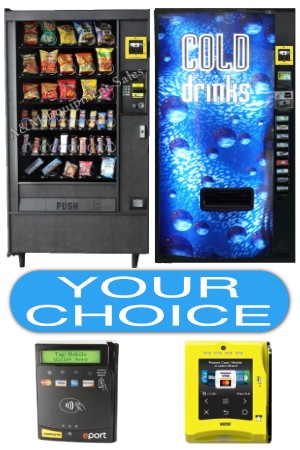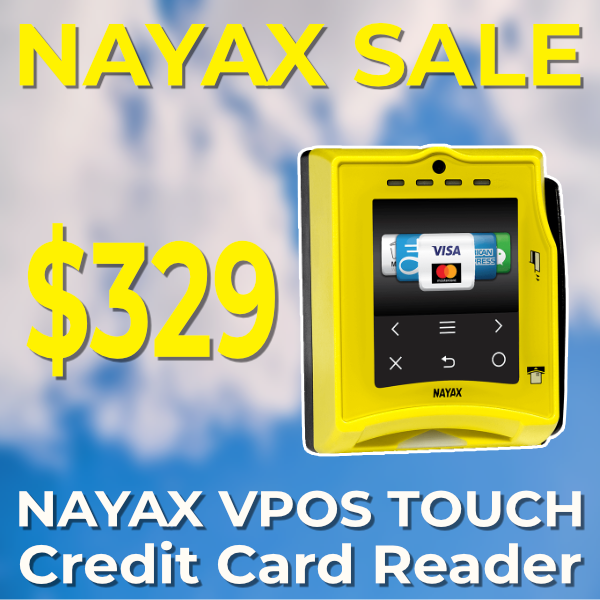How much money can I make from a vending machine Millions! Successful vending machine operators can have gross sales into the hundreds of millions of dollars, but so can successful car wash operators, multi-level marketing operators or, for that matter, employees. Your level of success depends upon your business skill, your ability to generate customers and manage people, your skill at accounting, planning and marketing, as well as other important abilities. You are limited only by yourself.
How much money can I make from a vending machine The vending machine industry is one of the few businesses left in which an operator can start with a modest investment, create positive cash flow, expand the business, manage his money and become wealthy. The vending machine business holds great opportunity, but that opportunity comes dressed in work clothes.
If you think all you are going to do is fill vending machines, count money and become wealthy, you are wrong. I always ask potential vending machine operators if they like to work, if they get up early and work late, and work on weekends. Their response dictates my suggestions. Many times I’ve invited a potential vending machine operator to come work with me for a day, starting a typical day at 5 a.m., finishing at 7 or 8 p.m., 5 days a week, with a half day on Saturday (until about 3) and Sunday off.
Successful vending machine operators start out with detailed goals. Before they act, they decide what they want. Successful vending machine operators set these goals in minute detail, for example: This year I will place four new vending accounts, in industrial facilities with 75 or more employees working three shifts and seven days. The new accounts will have at least a 50% Hispanic male population under the age of 35. I will place snack and soda vending machines, with options on office coffee service and a coffee vending machine. I will use vending machine equipment that has the “guaranteed vend option” on the snack and soda machines, they will be late model. I will use refurbished coffee machines if necessary. I will price products at $X for chips, $Y for candy and pastry, and $Z for bottled drinks and $Z-.25 for canned drinks; coffee pricing will be determined when necessary. I will service this vending machine account three times a week and expect to spend 2 hours at the location per visit, and expect to have revenue in the $ABC range.
This type of goal-setting is radically different from most people’s goals, which look more like: I wish I had a lot of money. Proper goal-setting is the basis for planning. The example looks like a plan, but is not; it is a goal, and this operator now sets about a sales and marketing plan to achieve this goal.
He takes his vending machine account parameters and starts identifying potential accounts that meet these standards. He doesn’t just place an ad in the newspaper and hope he gets the business. He calls the target businesses, explores the possibilities of obtaining the vending machine account, visits personally, sends direct mail and e-mail, talks to employees of the account, gathers information and keeps it in a file. And all this before he even generates one dollar.
After his sales and marketing plan is in place, the operator then plans for the placement of his vending machines. He checks the schedules of the contractors that do his installations so that, when he gets an account, he can place his vending machines quickly and efficiently – within the customer’s expectations.
The vending machine operator also has an operations plan. He knows what days he will service the account, how to handle service calls and refunds, he has a re-contact schedule, product acquisition plan (how he will obtain the product that goes into the machines), a vehicle maintenance plan, a money handling plan (how to count money and get it to the bank), an equipment replacement plan (vending machines, automotive, changer, validator, office equipment, software, etc.), a loss of vending machine account plan, and so on.
Successful vending machine operators also have expansion plans, which include specific plans for hiring vending machine route people, acquiring equipment, and managing financial, legal, licenses and taxes. As the vending machine operator’s business becomes larger, his focus will shift to newer plans that have more priority. What was irrelevant in the past becomes critical now. All growing businesses go through growth cycles, when the challenges change.
Put simply, if you want to be a successful vending machine operator, you have to set specific goals – goals that you absolutely believe you can achieve. The $8 billion vending machine industry offers the opportunity for you to achieve your financial goals. . . if you will study, plan, work hard and work smart. How much money can I make from a vending machine the sky is the limit. More Vending Business videos Starting a Vending Machine Route



